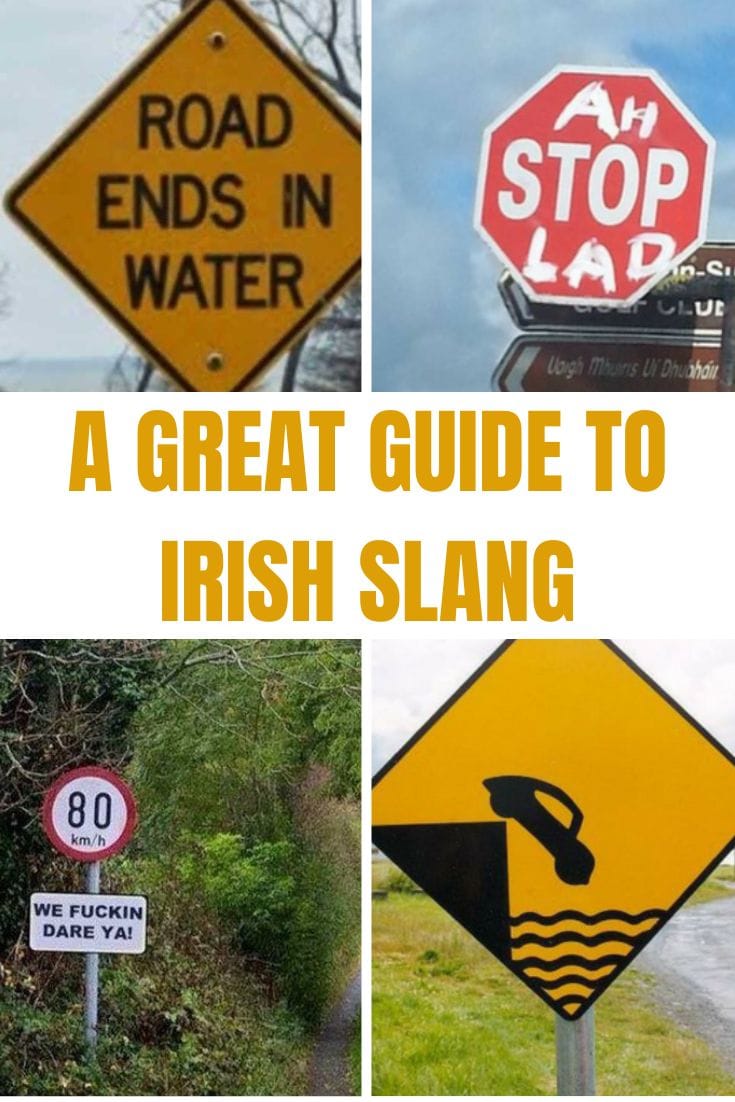Your Guide to Irish slang: Irish slang terms to know
Irish slang is a language all to its own. From the North to the ROI Irish slang can go over your head in an instant and you stand there with no clue as to what is being talked about. Here, I have highlighted the most commonly heard Irish expressions and words, their meanings and provided examples of how they are used in everyday speech.
The Irish people have a way with words and Irish terms and funny Irish sayings have been handed down from generation to generation. Irish idioms like “Jesus, Mary and Joseph” or “hand us the wooden spoon” are terms most of us Irish have heard at some point in our lives.
Northern Ireland has a vocabulary distinctly its own. From Belfast central to the outer edges regional accents and sayings do differ a lot. Irish slang and Irish expressions differ depending on where you are in the country be it the North or the South. The Irish pretty much shorten everything so here they say up North or they say down South to make their lives easier.
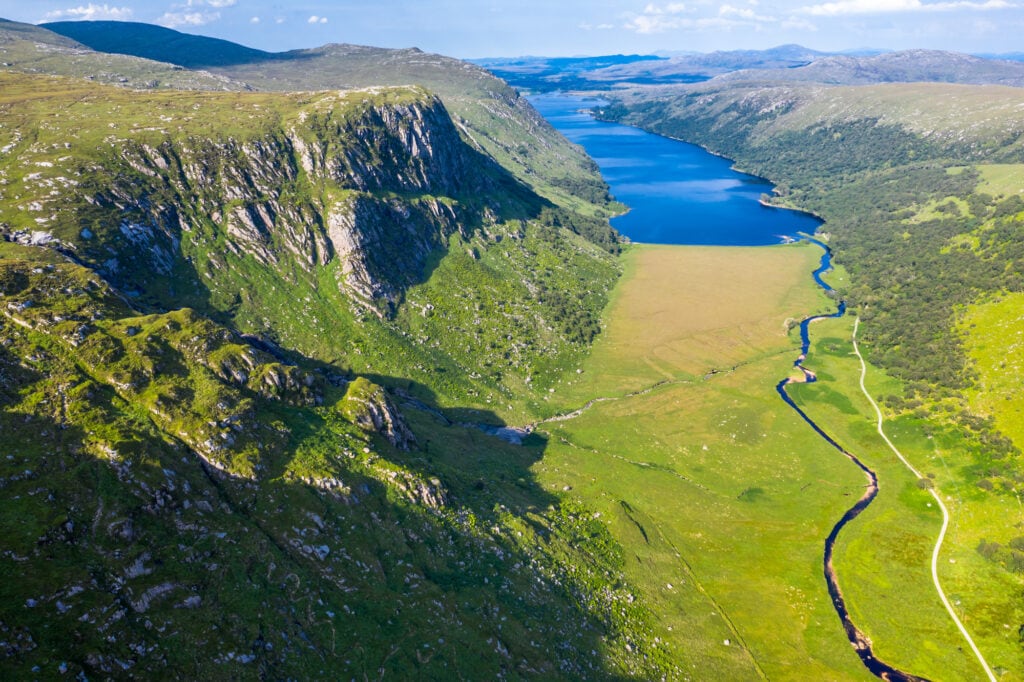
Common Irish Slang
Irish Slang does vary from North to South but there are lots of variants of the same words particularly swear words and words for getting drunk or being drunk. Craic is another not-so-much Irish slang word as a Gaelic word that is used both North and South for finding the good times.
Another favourite word in Ireland is grand. When someone in Ireland says grand it means everything was fine or great as in I’m grand today, or the pub was grand last night. This Irish phrase is used all over the island.
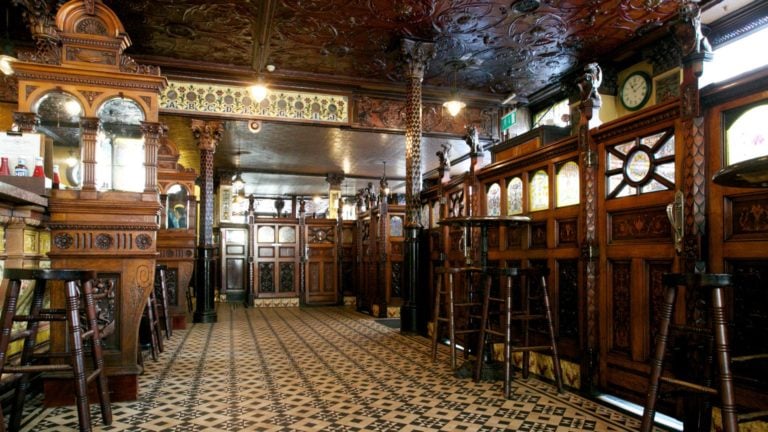
The Irish words or rather things (tings) the northern Irish say are to a large degree based on the plantation of Ulster, in other words, the Scots who moved to Northern Ireland. Along with some traditional English sayings, Northern Irish or Irish banter can be tricky to catch on to.
Belfast banter and the Belfast accent can be almost untranslatable. It reminds me of watching British TV shows in Canada with subtitles. You have to be pretty damn fast to catch some of it. Once you get the hang of these Irish expressions you are on your way.
44 Best things to do in Belfast
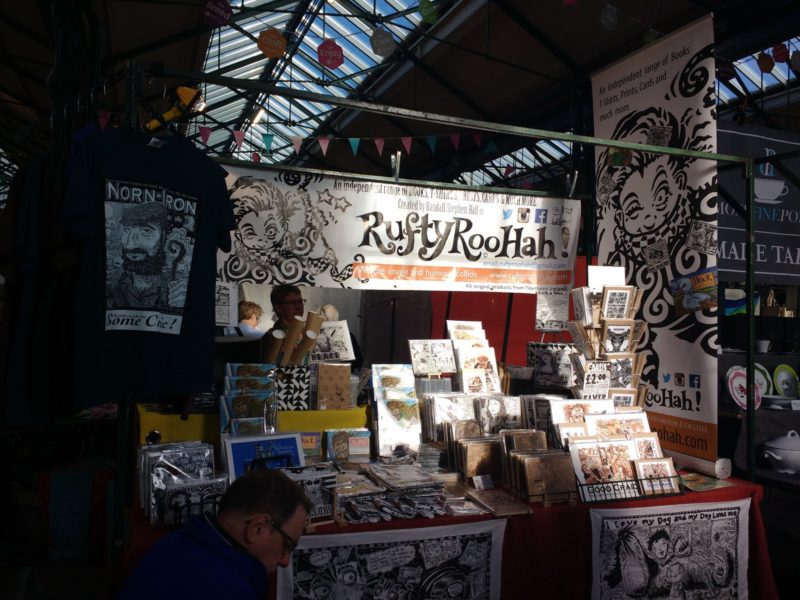
The first thing to learn about Northern Ireland is that up here it’s called “Norn Ireland” or at least that it is what it sounds like. The second thing to know is everything up here is “wee”. From a sales receipt to a plastic bag everything is “here’s your wee..”
Wee from the Ulster-Scots a word used to describe anything and everything. Would you like a wee cup of tea, here’s your wee receipt, it’s a wee garden and so on. Probably the most common word that is used in Northern Ireland – rather like the Canadians are supposed to say eh!
101 Landmarks in Northern Ireland
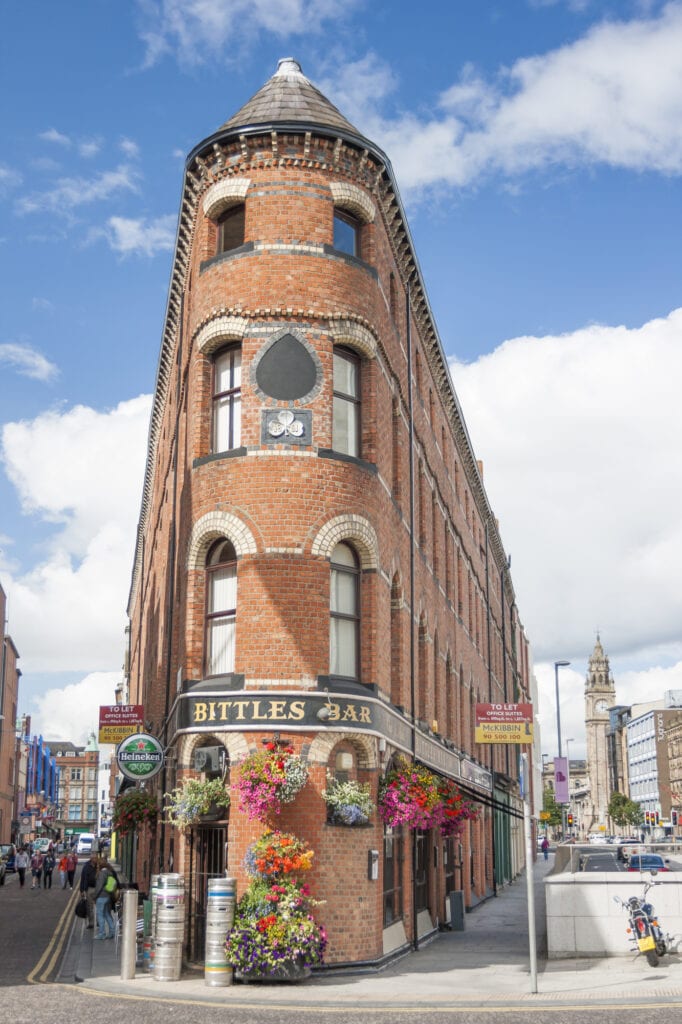
Northern Irish Slang: Common Irish Slang
Tae: Tea. as in put the kettle on and we’ll have a wee cup of tea.
Craic: popular throughout Ireland – where’s the craic, as in where’s the fun at and obviously minus craic means it was not fun
Banter: banter is the backbone of Ireland’s identity and it is all over Ireland, the banter, the craic, having a good chat and a laugh.
Grand: means good and is used up North and down South
Yer man – yer wan – yer one: is a way of referring to someone without naming them or if you don’t know their name
Courtin: If you are courtin‘ someone, you are dating them.
Gurn: To gurn is to moan about someone.
Scundered: means you are embarrassed for yourself or for someone else
Ragin: really angry and spouting off about things that made you angry
Houl yer whisht: literally means shut up or be quiet.
Bout ye? How are you?
I’ll run ye over: Means to give the person being spoken to a ride somewhere.
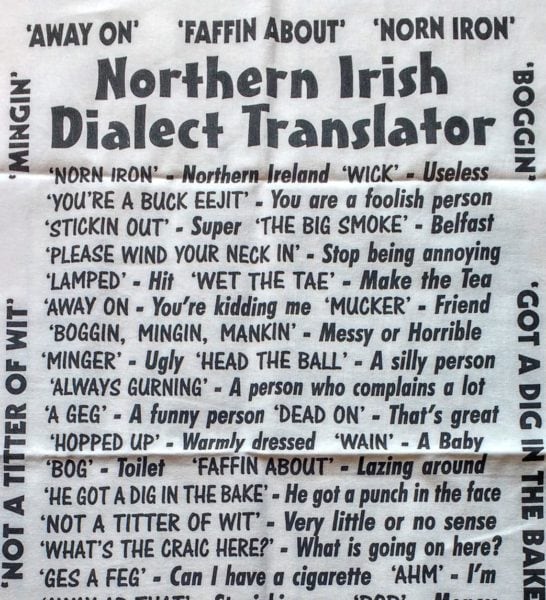
Planning a dream trip to Ireland? Everything you need to know
Buck eejit: Used to describe someone who does really stupid things
Up to high doh: She’s up to high doh as in very excited – either high doh angry or high doh really happy about something.
Yoke: An object. Often used when discussing motor vehicles.
Tongin: Basically a good tongue lashing
Dander: to go out for a dander is to go for a walk.
It’s baltic: it’s bloody cold or freezing
It’s roastin: the opposite of above bloody hot or ‘baking’
Awk sure ya know yerself: A confirmation of your knowledge and what you know is right
Banjaxed: (When something is broken)
Poke: (Ice-cream, usually a soft serve from an ice cream van.
Aye sure why nat?: A means of justifying/laughing off an inevitably bad decision – but you go ahead and do it anyway
Bake: is your face
Ach: A word that’s usually placed at the start of a sentence. “Ach go on.”, “Ach you know?”
Catch yourself on!: An expression used to express disbelief or imply that someone is not quite telling the whole truth
Does my head in: A way of expressing that a certain person, place or thing drives you crazy
Faffin: Messing around, acting an eejit.
Yarn: a good chat or talk
Ragin: Angry, fuming
Yer: You’re. as in yer man or yer woman said in both the North and South
Scundered: Embarrassed.
Scunnered: done it, exhausted
Youse: you lot said as in “youse lot come ere”
Kex: Underwear. “I have to go a buy new kex for my honeymoon”
Hoak: Rummage. “That wee man hoaks through the bins
Naff: Stupid, crap.
I’ll do you!: Expression, meaning you’re in big trouble, usually said by mammies or ma’s chasing their troublesome children with a wooden spoon.
Jammie: Lucky.
Lifted: Arrested
Wind your neck in: as in calm down
Offie: Off Licence where you can buy beer and liquor
What about ye?: What’s up, How are you?
Catch yourself on!: Smarten up and don’t try to fool me
Wet the tea: Make some tea.
Away in the head or away with the fairies: Lost his senses. Stupid.
Essential guide to renting a car in Ireland
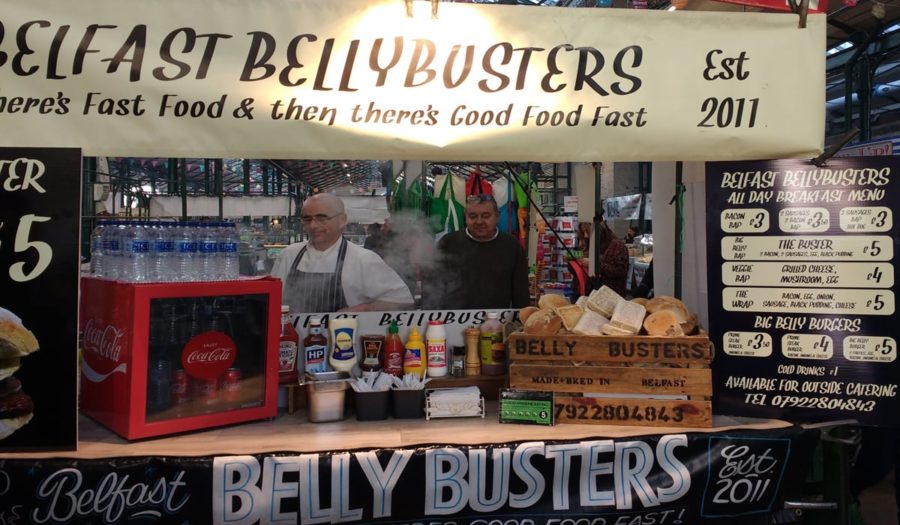
Away on!: used to express disbelief as in you’re kidding me?
Sound: a word used to compliment somebody as in she’s dead sound.
Wait till I tell ye: Said by someone who has some interesting gossip or a story to tell you
I tell a lie: It’s what you say when you’ve realised that you said something wrong!
Do you think I came up the Lagan in a bubble?: Do you think I was born yesterday? (The Lagan is the river that runs through Belfast. This phrase varies depending on which river you were brought up by.)
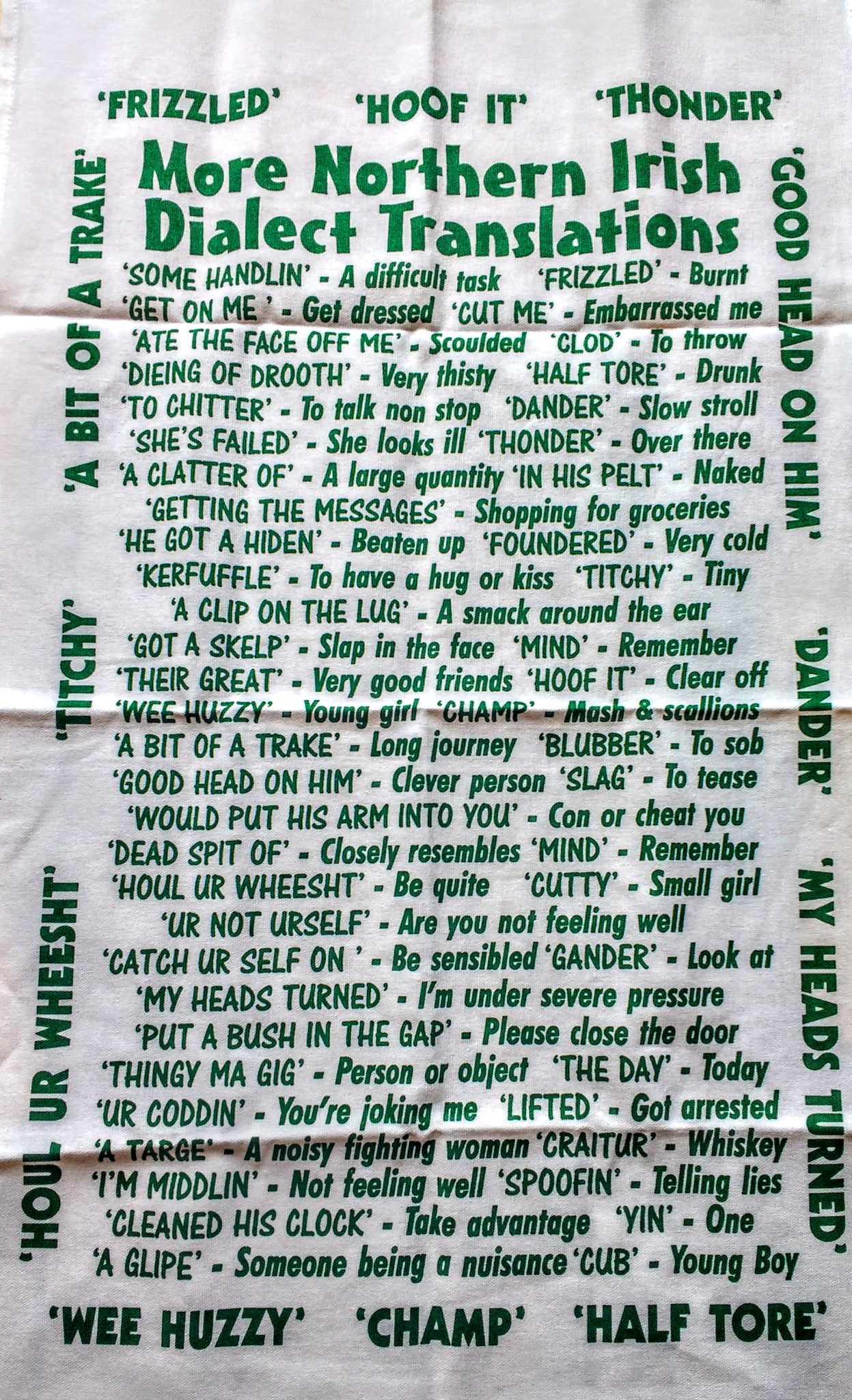
35 of the Coolest & Unique Places To Stay In Ireland
Dublin Irish slang
Irish slang phrases from the south are a little bit different but there are many that cross over regardless of where you come from. Here are some Dublin Irish slang sayings.
She’s Peeled — describes a broken object
Craic — a good time/fun
On the lash — to go out drinkingWho’s she when she’s at home? – usually used to bring someone back down to earth.
What a ride — super sexy
Stook — an idiot or fool
Snog — kiss
Jammers — packed full
Big front, slope back — feigning wealth when there’s nothing behind it or as the Scottish say “all fur coat and no knickers”
Poormouthing — when someone who has plenty of money pretends they don’t
The jacks — toilet/restroom
Chancer — dodgy character who will do anything to get what they want
Take the piss — to make fun of, tease, or take advantage of
Wanker — fool/idiot
Acting the maggot — being a jerk
Grand — this just means Ok, or that’s fine, or no worries
Just the one — the lie that every Irishman and some woman tell when they plan to go down the pub and have just one
Rounds — works in both the North and South and the UK the act of a group of people buying rounds of drinks. Can cause some serious drunkenness if your group is comprised of more than a few people who like a drink.
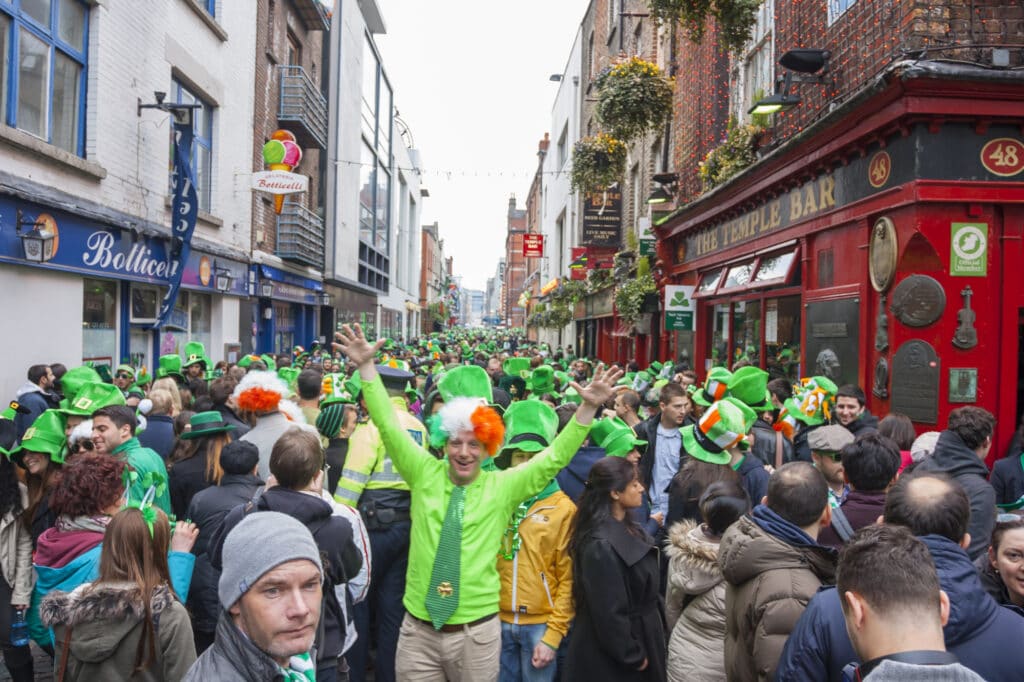
20 Famous Pubs in Dublin for a pint and some craic
Ah, sound — an acknowledgement that the person you are having a conversation with has heard what you are saying.
Muppet — fool
Knackered — exhausted
I will yeah — really means the absolute opposite as in no I won’t
Batter ya — I’ll beat you up
mad as a box of frogs — crazy
Racked — tired
In tatters — destroyed
Scundered — embarrassed
Swearing and cursing in Ireland
One thing you will notice as a visitor to Ireland is that the Irish swear and they don’t hold back on their swearing. Irish swear words are remarkably inventive and I have been constantly surprised by the fact that it doesn’t matter how old you are or how young the Irish can swear like troopers. Here’s your guide to Irish slang phrases.
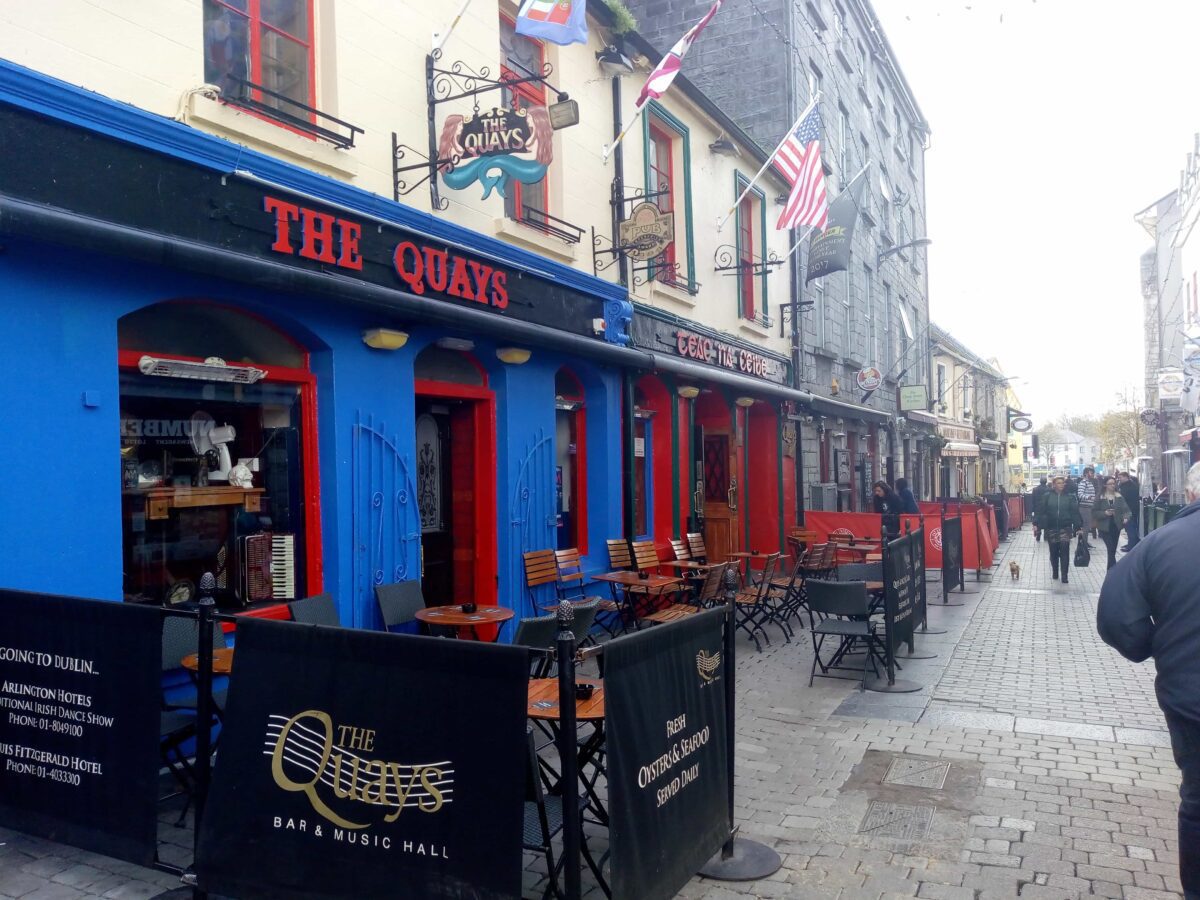
Irish slang swear words
These Irish swear words are used in both the north and south and I didn’t even include some of the worst Irish swear words – trust me they can get very explicit.
Frig(in’), Feck(in’), Flip(in’) All taken from the word fuck.
Bloody. Same as fuckin’, but not quite as harsh.
Friggin
Bollocks or bollix. Same as bullshit.
Shite. Shit.
Arse. Ass.
Fuck up. Shut up.
Kick his fuck in. Kick the shit out of him.
Fucked off. Pissed off.
Seven shades of shite. Lots of shit.
Nob. Penis.
He/She doesn’t know his arse from his elbow. Doesn’t know what he’s doing.
Arse about tit. Wrong-way round.
Come on to fuck. Hurry up.

Irish Slang for drunk
Pissed as a fart
Pure locked
Rubbered
Bolloxed
Hammered
Monkeyed
Blitzed
Pissed
Pole-axed
Steamin’
Full Cut
Half Cut
Blootered
Plastered
Rat-arsed
Shit faced
Paralletic
Fucked
Mangled
Langered
Legless
paralytic
Lashed
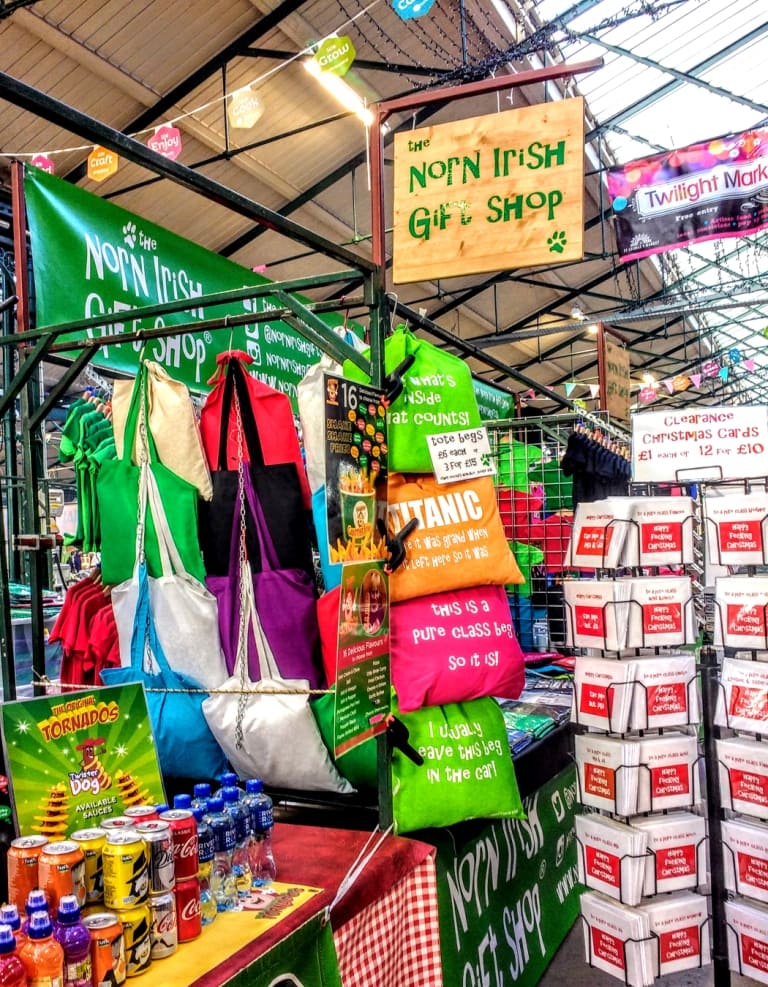
Best Irish Movies Movies About Ireland To Watch Now
FAQs about Irish slang
Why do the Irish say Feck? Feck is a derivative of a more offensive word that I’m pretty sure you can guess. However, having said that if you are ever on a bus in Dublin you will hear the original word a lot and it may surprise you just how often the real F word is used.
What do the Irish call a girl or woman? There are various words for females, women or girls in Ireland and they include: lass, colleen – bean pronounced ban is old Irish for a woman.
How do you insult an Irish person? A very difficult task as most Irish insult each other and you on a regular basis and if you can’t take an insult don’t go to Ireland as it is expected that you join in. These are the Irish derogatory terms that are often used and are considered an insult or a term of endearment – take your pick. Fecker, gobshite, eejit and tool.
What Irish words have become well known as English words? These are a few Irish terms that have become commonly used English terms: boycott, galore, slew, hooligan, brogues, gob, and clock.
How do you say good night in Irish? Oíche mhaith or phonetically /Ee-ha wah/.
How do you say good morning in Irish? First of all NEVER and I mean never use the words top of the morning to you – the Irish hate that it’s a stereotype and they consider it stupid and insulating. If you want to say good morning in Irish it is Maidin mhaith is pronounced as MA-jin wah or MA-jin why emphasis on the MA part.
You’ve probably heard a few that I haven’t listed – the Irish are pretty damn creative when it comes to banter so feel free to leave a comment with something you may have heard in passing. Here are a few Irish signs that you might come across when driving Ireland.
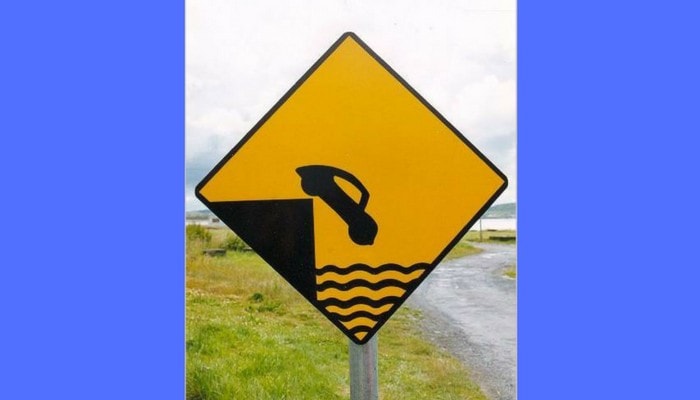
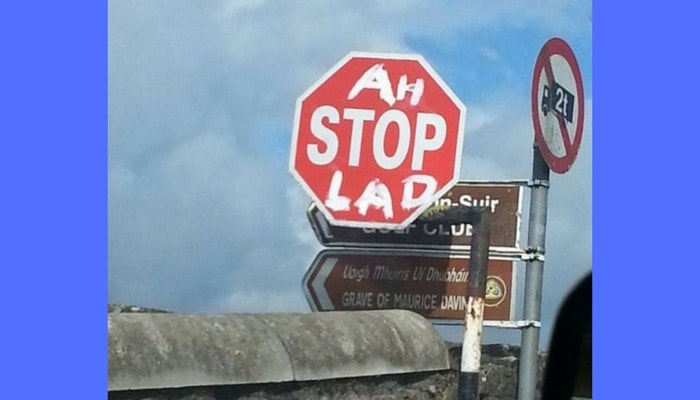
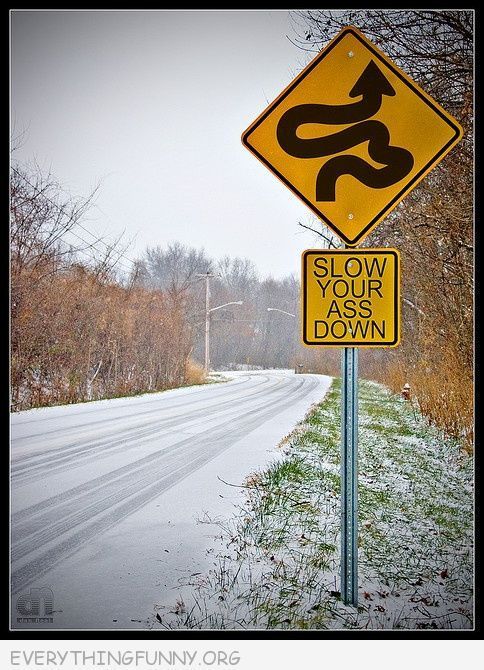
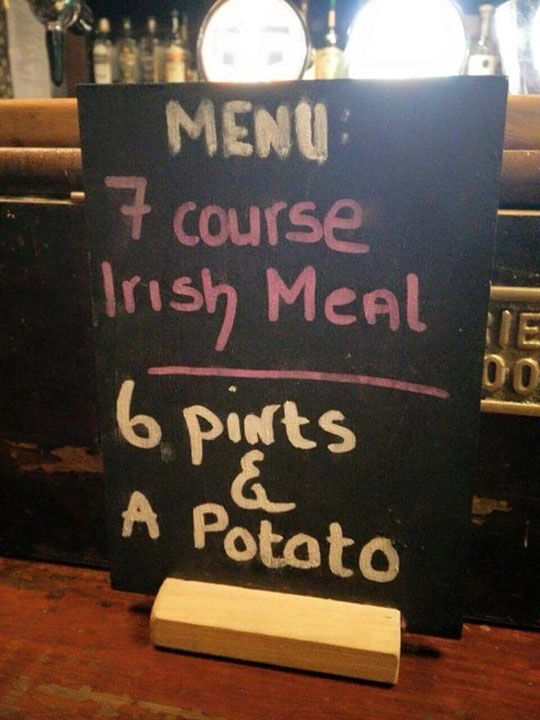

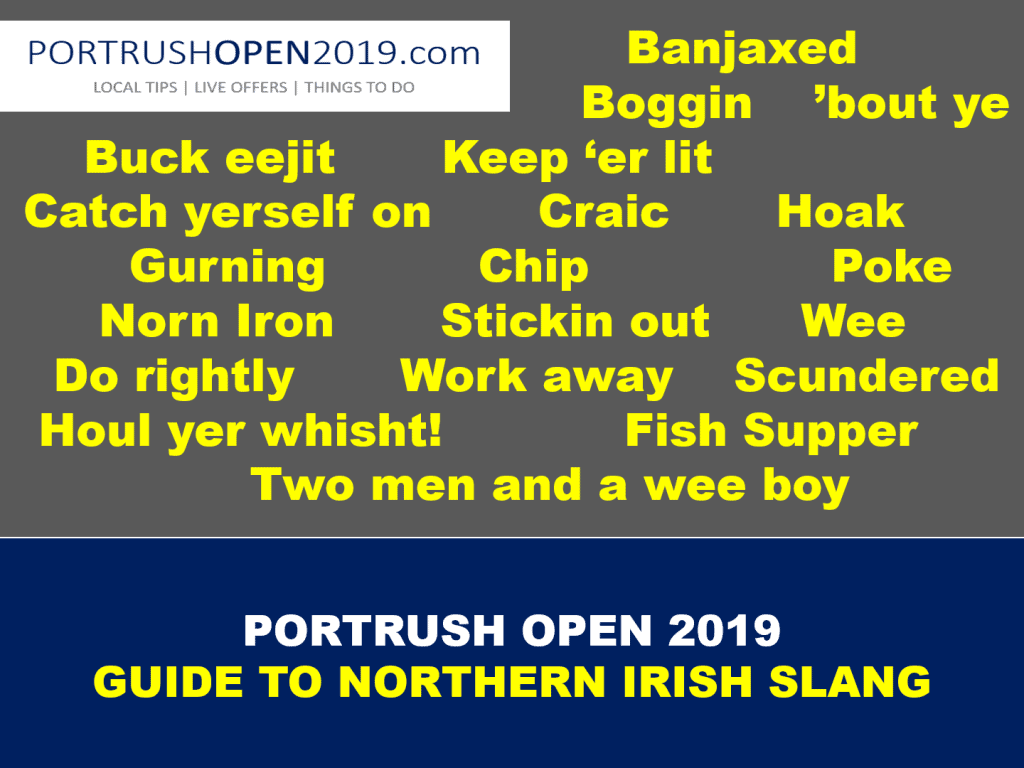
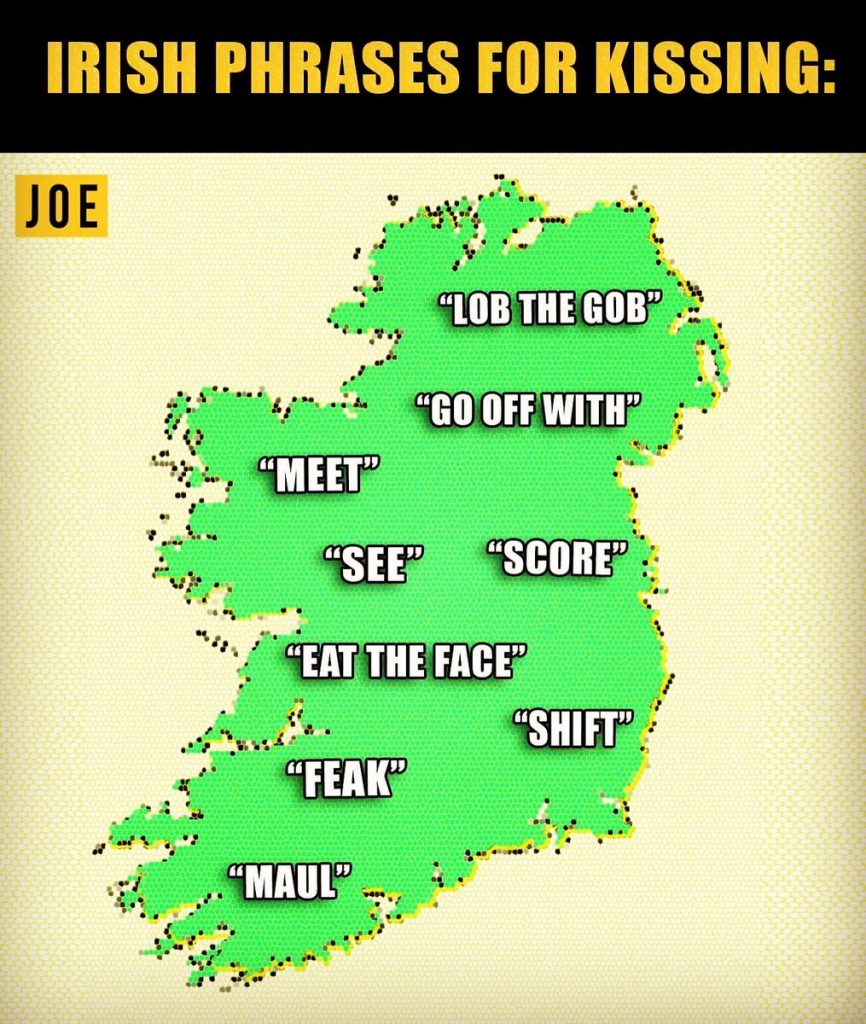
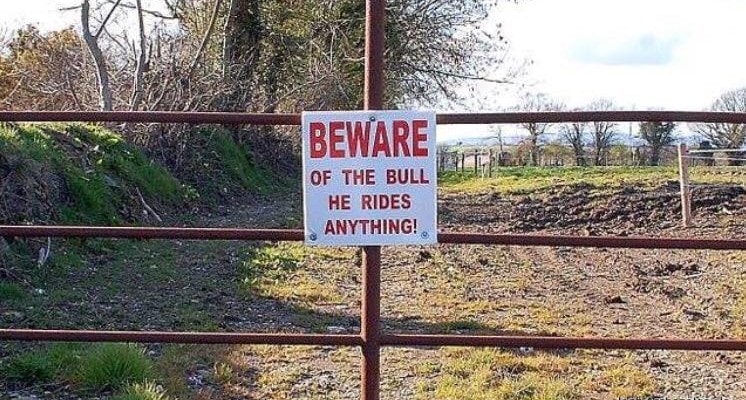
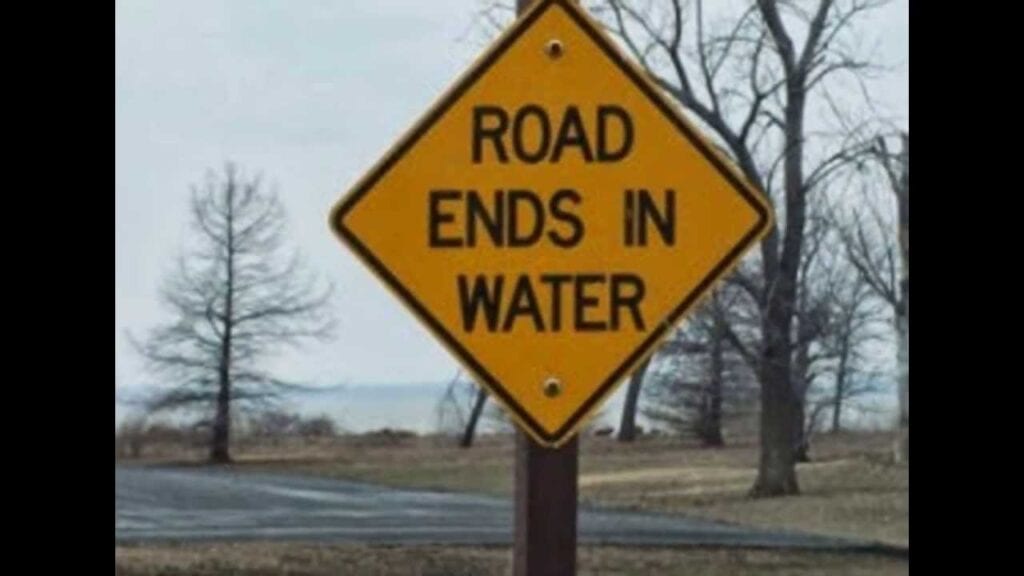
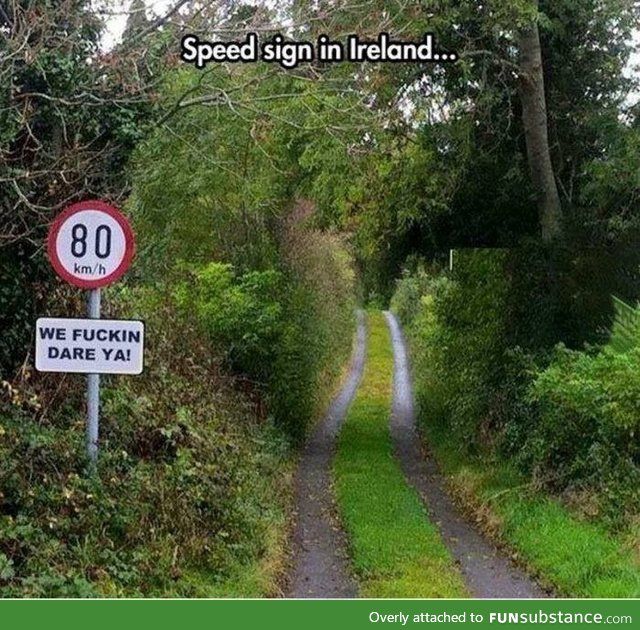
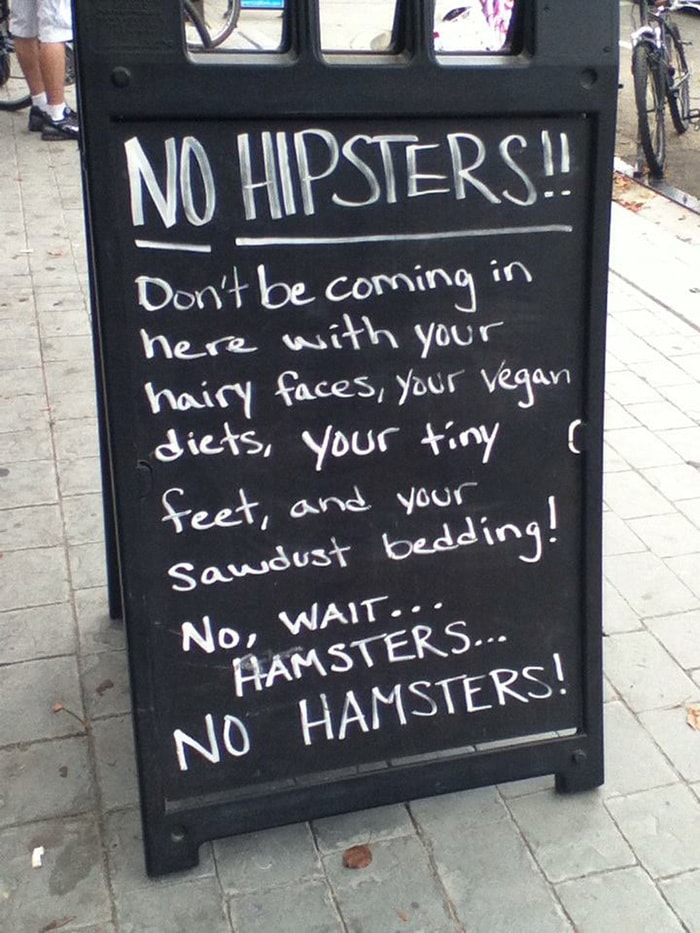
Here’s a few places where you might hear some Irish slang.
15 tips for celebrating St. Patrick’s Day in Dublin
Ultimate Wild Atlantic Way Route
Ireland’s Ancient East – an epic road trip
What to do in Donegal Town – best things to see, eat and do
Best 2 Days in Galway the European Capital of Culture
If you know of any Irish slang phrases I may have missed let me know – I do like to keep up to date on these things….lol..
You might also like

